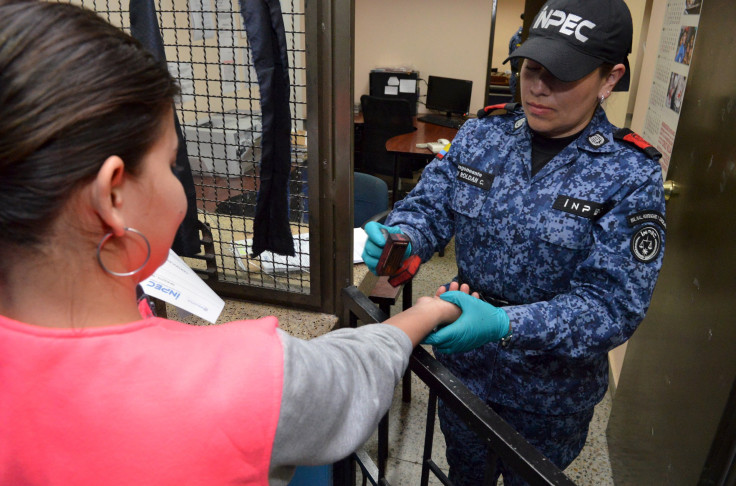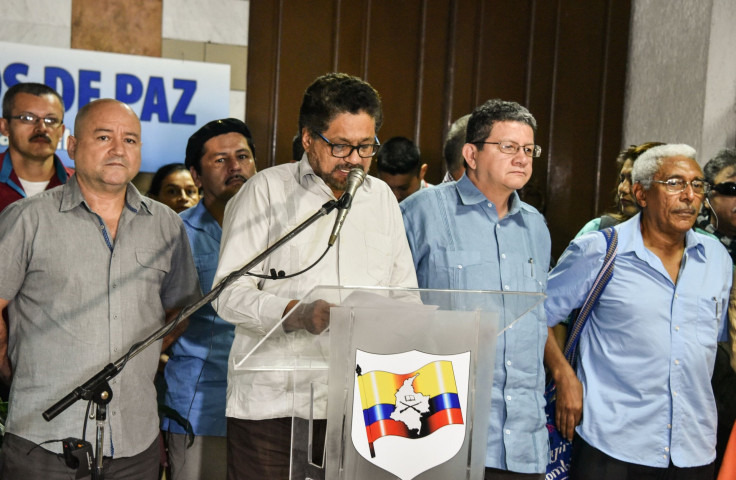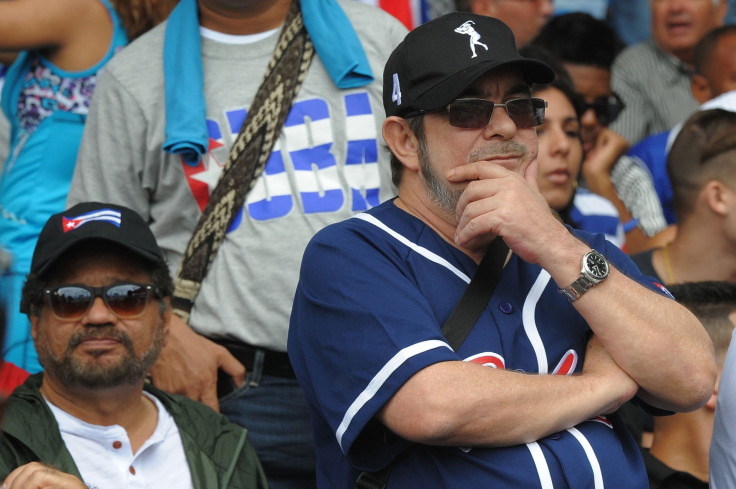Colombia-FARC Peace Talks: Deadline To Sign Peace Deal Unlikely To Be Met

After fighting the Colombian government for over half a century in an armed conflict that has claimed over 220,000 lives, the left-wing rebel group Revolutionary Armed Forces of Colombia (FARC) — declared a terrorist organization by the United States in 1997 — has been discussing a peace deal with the government for over three years now. The talks between the two sides, which began in Havana in November 2012, was given a shot in the arm Monday when U.S. Secretary of State John Kerry, who was accompanying President Barack Obama on his Cuba visit, met with both sides and offered support for rebels who lay down their arms.
Protection for FARC rebels who give up their weapons is a key concern for the organization that fears they would make easy targets for paramilitary groups formed in the 1990s to combat the leftist fighters. According to Reuters, negotiators already see eye to eye on issues of land reform, guerrilla participation in politics, transitional justice, efforts to find missing persons and remove land mines, and an end to illegal drug trafficking. But the two sides are still discussing a bilateral ceasefire and rebel demobilization, issues complicated by the rebels’ safety concerns.

That could change, however, now that Kerry has announced U.S. commitment to support the security of disarmed rebels. Kerry met both sides separately in Havana and “told both parties he is encouraged that the ‘end of conflict’ issues are now front and center in the negotiations, including a formal bilateral ceasefire monitored by the U.N. Security Council; a timetable for disarmament, and security guarantees post-conflict for all lawful political actors,” according to a statement by the U.S. Department of State.
FARC leader Rodrigo Londoño, who goes by the nom de guerre Timochenko, called the meeting with Kerry “historic, unprecedented, unimaginable.” He also said: “We have received from him in person a backing for the peace process in Colombia, which filled us with optimism and which gives us more certainty that we are heading toward peace,” according to Reuters.
The Colombian government called its meeting with Kerry “very productive” and its chief negotiator, Humberto de la Calle, said they had discussed challenges to the peace talks in detail with Kerry, the Guardian reported.
Kerry’s outreach to the Colombian rebel group, which the U.S. has repeatedly accused of drug trafficking as well, is a part of Obama’s new policy toward Cuba to improve U.S. standing in Latin America and also to help resolve long-running disputes, of which FARC’s war in Colombia is the longest.
In a speech Tuesday, Obama said: “Americans and Cubans are sitting together at the negotiating table and we are helping the Colombian people resolve the civil war that has dragged on for decades,” Reuters reported.

The meeting between Kerry and the rebels materialized also in part due to a request from Colombian President Juan Manuel Santos who is keen for the long-standing conflict to be resolved. However, former president Álvaro Uribe Vélez is a strong critic of the peace talks and condemned the meeting between the U.S. Secretary of State and FARC rebels. He said, on Twitter, that many Colombians felt offended by the U.S. government meeting what he called the world’s largest drug cartel and terrorist group.
The rebels and the Colombian government had set March 23 as the deadline to sign the peace deal, but with the rebels’ safety and other issues still lingering, the Wednesday deadline is almost certain to be missed.
© Copyright IBTimes 2025. All rights reserved.





















